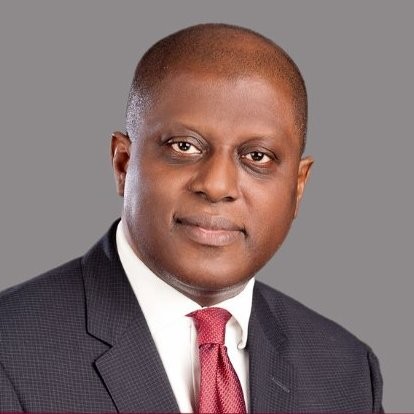The Federal Government has reportedly spent $8 billion stabilising the naira, says Bismarck Rewane, FDC CEO.
Rewane made this claim during an interview on Channels Television, highlighting recent improvements in the foreign exchange market, where the naira now trades at N1,500 per dollar.
$12 Trillion Spent Based on Current Exchange Rates
At the prevailing rate of N1,500 per dollar, the federal government’s alleged $8 billion intervention translates to nearly N12 trillion spent on stabilising the naira.
Rewane stated:
“Substantial federal government intervention stabilised the exchange rate. We’ve also borrowed $4 billion through bond issues. Altogether, almost $8 billion has been spent supporting the naira at current levels.”
Presidency, CBN Dispute Rewane’s Claims
However, both the Presidency and the Central Bank of Nigeria (CBN) have disputed Rewane’s assertions.
Bayo Onanuga, Special Adviser to the President on Information and Strategy, dismissed the claim, stating:
“It is not true. It’s a ridiculous statement to make. The CBN will set the record straight.”

Attempts to reach Mrs. Hakama Sidi Ali, CBN’s Acting Head of Corporate Communications, were unsuccessful, as calls and messages went unanswered.
Naira’s Recent Performance and Government Interventions
Rewane linked the naira’s recent appreciation—trading between N1,505 and N1,507 in parallel and official markets—to extensive CBN interventions and debt issuances.
Despite this improvement, he urged Nigerians to remain cautious, noting that the CBN’s Monetary Policy Committee (MPC) recently maintained the interest rate at 27.50%, indicating ongoing concerns about the economy’s health.
The Journey of the Naira Under Tinubu’s Administration
Since assuming office, President Bola Tinubu has implemented significant currency reforms, including floating the naira in June 2023 through a “willing buyer, willing seller” exchange approach.
This decision initially led to sharp depreciation:
- The naira fell from N460 to N650 within the first week.
- By November 2023, it dropped further to over N1,200 per dollar.
- In January 2024, it traded at N1,365 in the parallel market and N878 officially.
- February 2024 saw rates nearing N1,900, prompting government clampdowns on bureau de Change operators and forex speculators.
- Recent efforts have resulted in relative stability, with the gap between official and parallel market rates narrowing significantly.
Context: Naira Management Approaches Across Administrations
Under former President Muhammadu Buhari, the naira remained tightly controlled. Buhari repeatedly opposed devaluation, arguing that:
Nigeria’s import-reliant economy could not handle the impact.
However, the decision to float the naira under Tinubu, while stabilising forex market transparency, triggered inflationary pressures:
Inflation surpassed 28% in early 2024.
Fuel price hikes (due to subsidy removal) and food inflation worsened economic hardship.
Businesses continued struggling to access forex due to CBN’s limited supply.
Economic Implications of Naira Stabilisation Efforts
Rewane’s claim, if accurate, signals a massive financial commitment by the federal government to prevent the naira’s free fall.
This raises key questions about the sustainability of such interventions, especially given Nigeria’s rising debt levels and dwindling foreign reserves.
While the Presidency denies these expenditures, analysts believe further transparency from the CBN would clarify the true extent of Nigeria’s forex interventions.




